
In response to the mass murders of innocent civilians in Iraq, the United Nations has said it is extremely alarmed by the extrajudicial killings and summary executions carried out by the al-Qaeda-linked militants.
This video explains the current crisis is Iraq n under 5 minutes:
Since members of the extremist group, Islamic State of Iraq and Syria (ISIS) started attacking Iraqi soldiers and a large number of civilians last week, UN High Commissioner for Human Rights Navi Pillay condemned the reports of mass murder, on June 13th.
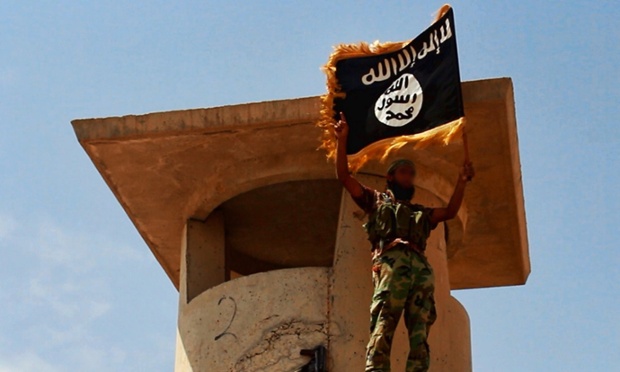
Pillay said the number of victims of extrajudicial killings and summary executions has run into the hundreds and Iraq’s refugee population has increased by approximately 800,000 this year, with 300,000 people having fled their homes in Dahuk and Erbil this week alone.
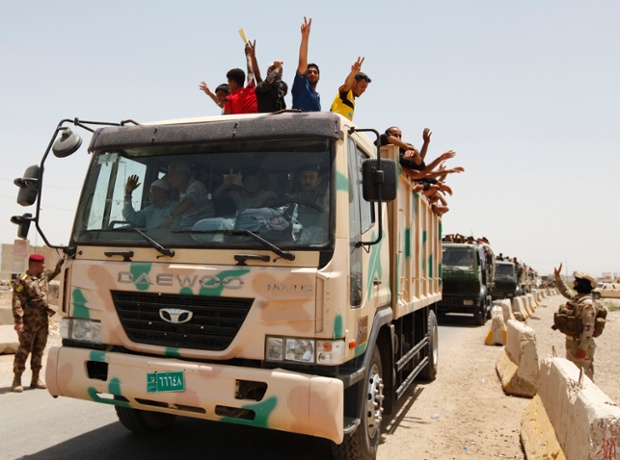
As civilians from Karbala, Najaf, Basra and Baghdad have volunteered to join the army in its fight against ISIS, Nouri al-Maliki, Iraq’s Prime Minister, said the government would arm citizens in Nineveh and other areas so they can defend themselves against militants. After the country’s most influential Shiite cleric called for volunteers, thousands of followers of Kata’ib Sayyid al-Shuhada left for Baghdad to join the Iraqi army and protect fellow civilians against the radical Sunni militants who have attempted to devastate the country in recent days.
Huge numbers of Iraqi people represented by members of the Islamic resistance and Kata'ib Sayyid al-Shuhada responded to a call by Marjiya in Najaf. The crowd of volunteers will go for training and then carry arms to defend the country, sanctities and the people,” said Hassan al-Jaberi, a member of Kata'ib Sayyid al-Shuhada.
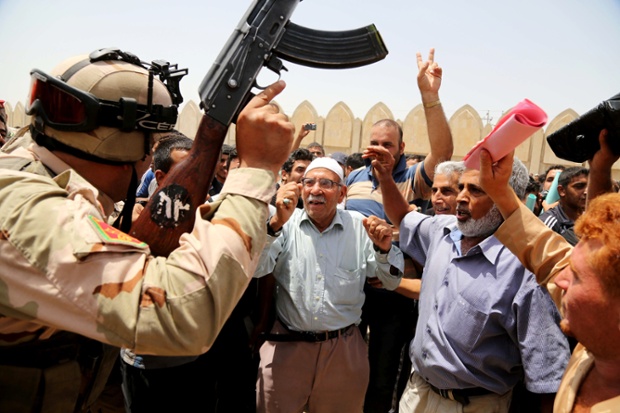
In the last one year, as government control and borders have frayed across Iraq, ISIS has managed to take over northern and western Iraq as well as northern and eastern Syria. On June 10th, the organization took over Mosul before heading towards Baghdad, the capital of Iraq, ransacking several towns along the way. After four days of fighting, Iraq’s security forces left their posts in Mosul allowing ISIS militants to take over army bases, government offices and banks. The Jihadists acquired huge stocks of American-supplied arms, ammunition, vehicles and cash. Fearing for their lives, more than 500,000 people fled from Mosul and surrounding areas. Before launching their audacious attack on June 10th, ISIS captured Ramadi, Raqqa, Tikrit and Falluja over the last six months. The speed at which ISIS has been advancing suggests it has received aid from the Baathist regime, a network of Sunni remnants that belonged to late dictator Saddam Hussein’s underground resistance opposing US forces.
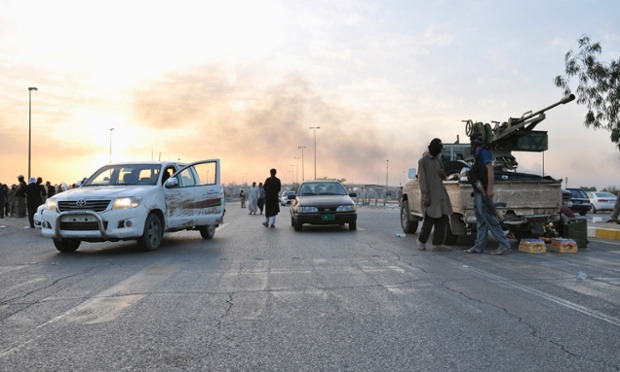
In April 2013, ISIS said it was expanding its operations in Syria and changed its name to Islamic State of Iraq and the Levant or Greater Syria (ISIL) that suggests the conquering of a much larger area than present-day Syria. The organization is headed by Iraqi jihadist Abu Bakr al-Baghdadi and has 6,000 militants in Iraq, 3,000 to 5,000 in Syria and approximately 3,000 foreign nationals including 1,000 from Chechnya and the rest from Britain, France and other parts of Europe. ISIS mostly targets Shia Muslims and other minorities like Christians and Alawites, sacking Shia shrines and churches, dispatching suicide bombers in public places and having no regard for civilian casualties.
Post 2011, ISIS dissociated itself with the al-Qaeda, setting ideological differences and set out to control territory, imposing its own moral code and dispensing its own brand of justice over places it took over. In fact, it also levies tax in the areas of Iraq and Syria that it has managed to conquer. In short, ISIS has been creating a proto-state on the ungoverned lands that lie between the two conflict-stricken countries of Iraq and Syria. As Tunisian and Moroccan jihadists continue to settle with their families in cities across Iraq, ISIS has appointed new chiefs in mosques and set up its own intelligence service as well.
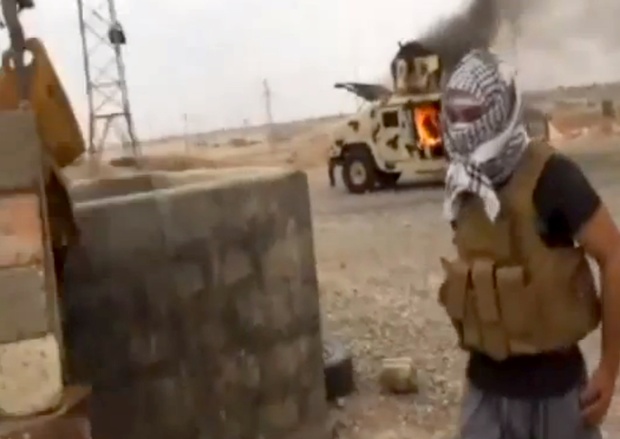
The strained ties between the regimes of Syria and Iraq are the main reason for ISIS to have become such a stronghold in the region. Reportedly, the organization was initially funded by wealthy donors in Qatar, Kuwait and Saudi Arabia, three American allies that seem to have dual interests in the war on terror.
Warning: Isis Death Squads Killing without mercy. Video not for all (18+)“Everybody knows the money is going through Kuwait and that it’s coming from the Arab Gulf… Kuwait’s banking system and its money changers have long been a huge problem because they are a major conduit for money to extremist groups in Syria and now Iraq… Over the last two and a half years, Kuwait has emerged as a financing and organizational hub for charities and individuals supporting Syria’s myriad rebel groups,” said Andrew Tabler, senior fellow at the Washington Institute for Near East Studies.
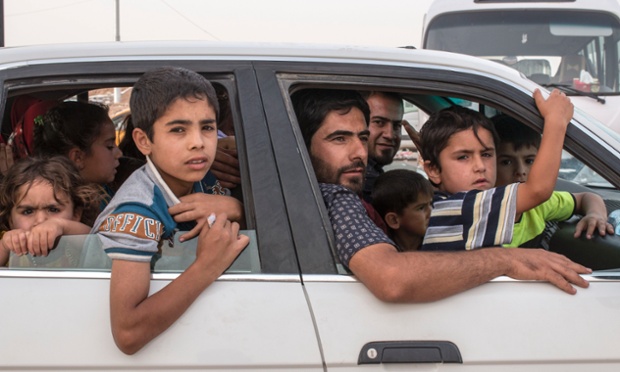
As the mass massacres in Iraq seem to worsen with women and children being tortured, the United States decided to evacuate hundreds of Americans from the country on June 12th. There were approximately 5,000 American contractors in Iraq, most of whom were involved with one of the largest training programs in the Iraqi military, which has been unable to do much against the bloodthirsty rebels so far. The State Department warned its citizens of being at high risk for abduction and violence, advising them to avoid public places where they could be attacked by militants. On June 13th, U.S. President Barack Obama said he was overseeing military options, short of sending troops, to help combat the insurgency.
